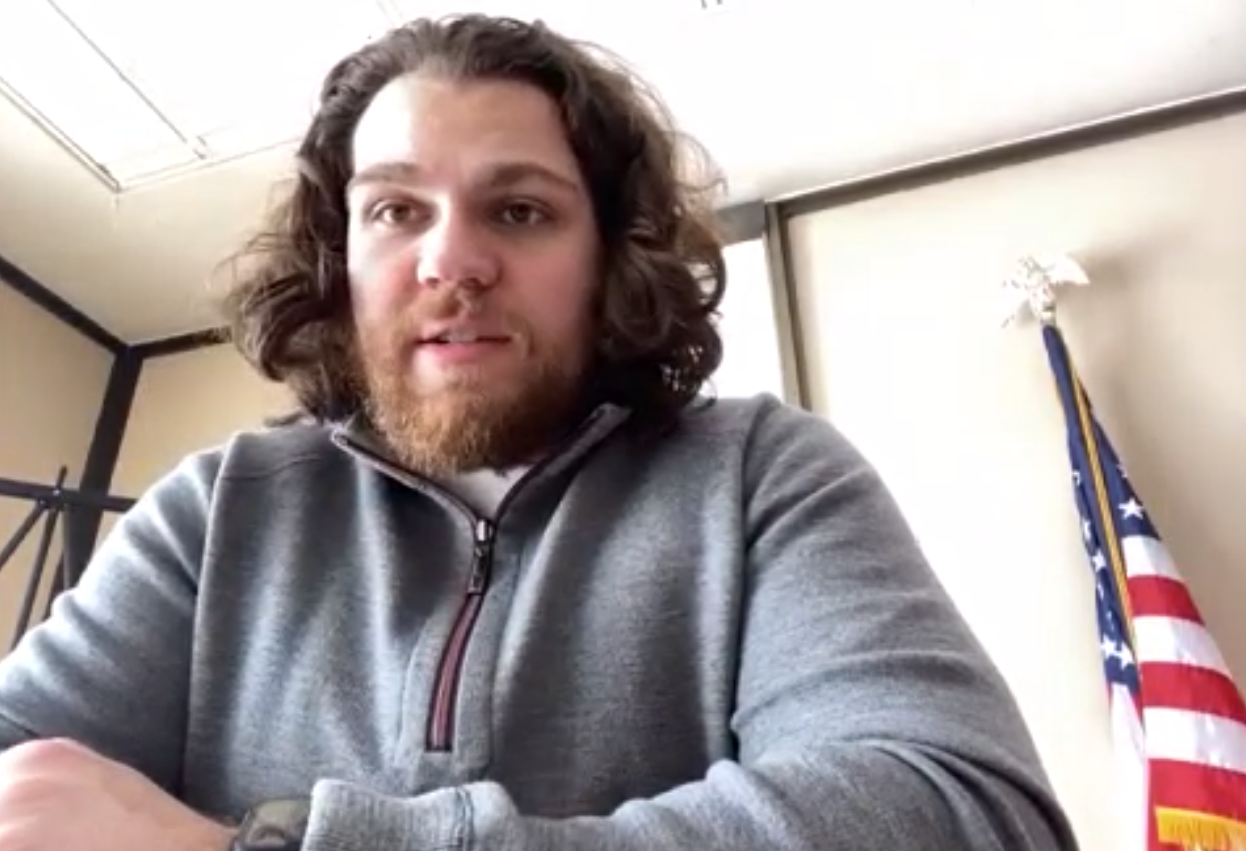
Evan Sem

Audio By Carbonatix
Yes, overwhelmingly Democratic Denver does have a Republican Party. And the Denver Republican Party has a new chair, Garrett Flicker, who’s openly gay, Jewish and just 25. He also identifies as a “very moderate Republican,” and isn’t afraid of taking on tough issues, including homelessness.
Last month, Flicker received approval to begin collecting signatures for a ballot initiative that would require the city to set up safe-camping sites for people experiencing homelessness, while also granting Denver residents power to sue the city if it doesn’t ameliorate complaints about outdoor camping. And, just as many people are surprised to find out that the city has an active Republican Party, Flicker has been surprised by how many messages of support he’s received for the initiative.
“I have gotten a lot of Facebook messages saying things like, ‘I left the Republican Party, but this gives me hope,’ or Democrats expressing support. I’ve gotten a lot more communication back than I had ever initially thought,” Flicker says.
Elected chair of the Denver Republican Party in February, Flicker had already been working on the initiative since last October. “I wanted to get involved with tackling this issue. I’ve lived in Denver for the last three years, and I’ve seen this homelessness epidemic just mushrooming right now,” Flicker explains. “At the end of the day, this isn’t an ideological problem. We have to stop looking at homelessness as an ideological problem.”
Flicker, who previously worked in the Colorado Legislature and also graduated from Fort Lewis College in Durango, plans to work with petition companies and Denver volunteers to get the 9,184 valid signatures he needs by early July in order to land the initiative on the November 2021 ballot.
Denver has had an urban camping ban on the books since 2012, but officials estimate that over 1,000 people are still living outdoors on the streets. The ordinance outlaws camping on public and private property, and local authorities often cite it when asking or ordering people sheltering in tents or tarps to move; the city also uses laws related to the public right-of-way and public health and safety to clear encampments. These laws, along with the camping ban, have been the subject of multiple lawsuits, including one filed in October in the U.S. District Court of Colorado that resulted in a January judge’s order placing restrictions on how and when the City of Denver can sweep encampments.

Garrett Flicker met with city officials on April 16 regarding the homeless encampment ballot initiative.
City of Denver
While requiring the city to set up safe-camping sites, Flicker’s initiative would also give Denver residents the right to file formal complaints with the city when it does not enforce the urban camping ban. If the city doesn’t respond to the complaint within 72 hours, the person who registered the complaint could sue.
Service providers and homeless-rights advocates almost universally criticize the camping ban as cruel and ineffective, and some are concerned that Flicker’s proposal would further criminalize Denver’s homeless population.
“While I clearly support the expansion of Safe Outdoor Spaces and similar strategies for unsheltered individuals, increased encampment enforcement through policing is the absolute wrong way to go about that,” says Cole Chandler, director of the Colorado Village Collaborative, which currently runs one of the two existing safe-camping sites in Denver and will be running the two new sites that replace them next month.
“It’s not criminalizing homelessness by any stretch. In fact, I think it does the opposite,” responds Flicker, noting that the initiative would allow for up to four safe-camping sites in Denver. “The camping sites are an effective model.”
Flicker adds that the initiative is not focused on sweeps in public areas, but “specifically for private property.”
As the initiative is written, however, “the enforcement mechanism clearly applies to camping on public land along with private land,” says Andy McNulty, a Killmer, Lane and Newman attorney who filed the October 2020 lawsuit on behalf of Denver Homeless Out Loud and multiple homeless plaintiffs.
“It is a poorly drafted ordinance that will cost the city millions of dollars and do nothing to solve our homelessness crisis,” adds McNulty, who refers to the initiative as a “publicity stunt” by Flicker.
Responds Flicker: “Citizens don’t own public property. They can only challenge on their property or property where they have authority from the owner (like a tenant).”
Despite the criticism, Flicker thinks the initiative is a good move to remind people that Republicans are not only in Denver, but that they care about the city.
“The Republican Party has historically had a disconnect with the urban community,” says Flicker, who adds, “Conservatism and Republican ideas can absolutely present urban solutions.”